In the world of drawing, the term ‘talent’ comes up frequently, as if it were a prerequisite for excelling in art. We’ve all had this thought, believing that we lack talent.
At some point, we’ve all wondered if reaching the level of certain artists is probably impossible. We naturally believe that being gifted is essential to achieve a high level in drawing.
But is this really the case? Do we necessarily need that ‘extra something’ to succeed in our drawing journey? Let’s take a closer look.
In this article, we will approach talent as simply a remarkable and spectacular aptitude, an innate and rare ability. This is often how the word ‘talent’ is understood, and unfortunately, it can intimidate beginner artists in drawing.
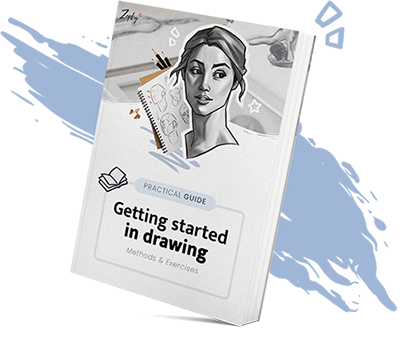
Discover our free guide to start drawing easily. You will learn practical methods and exercises to put into practice right away.
1 - The Problem Posed by Talent
It’s easy to believe that we must possess an innate gift to be good artists. It’s even very gratifying when someone says, ‘Wow, you’re so talented, you were clearly meant for this!’
This flatters our ego, and we feel more legitimate to draw. Suddenly, we feel stronger, and we draw with more assurance and confidence.
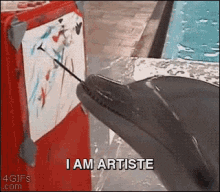
Let’s take a moment to ask ourselves a few questions. Do we truly believe that we can effortlessly draw anything purely by instinct?
Is it possible to draw anatomy innately without even studying it? Well, not really.
It is true that some individuals have an easier time learning more quickly and effortlessly. They may also be less easily discouraged or highly motivated.
At times, our differences in personality and work approach lead us to believe that certain people possess an exceptional talent. However, most of the time, we fail to realize how hard they have worked to achieve their level of skill.
2 - Drawing is a Skill
Most people who start drawing do not realize that it is a skill. It develops through practice, training, and understanding. In a way, it’s comparable to sports.
An athlete learns to understand how their muscles work. They develop and train them to achieve peak performance. Then, they continue to practice again and again to improve their results! In drawing, we will have to follow the same path
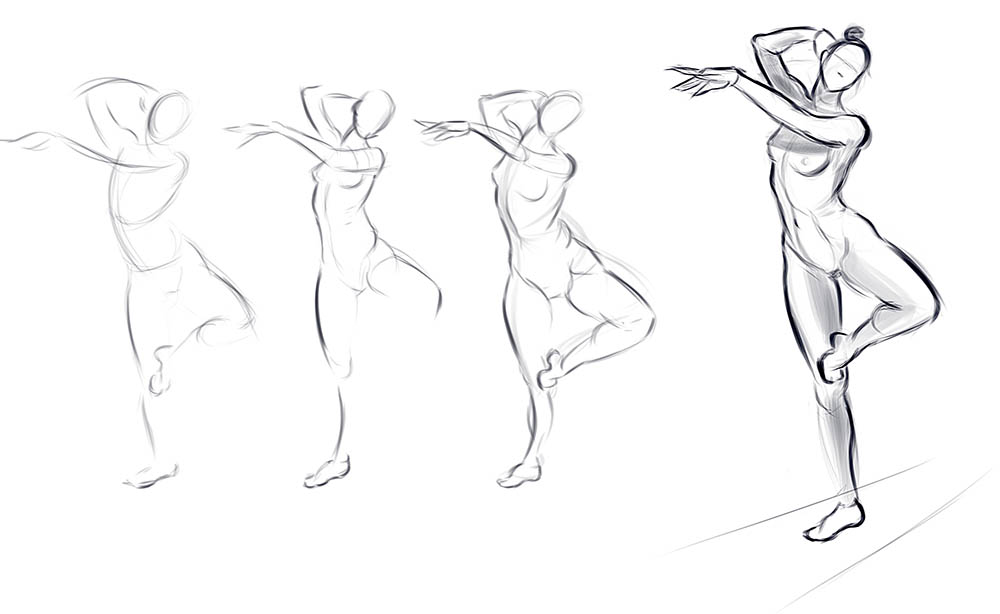
It’s not a special gift that allows us to learn how to draw. It’s rather perseverance and a positive mindset that make the difference.
By adopting simple methods, organizing our work well, and practicing regularly, we can achieve significant results. Since drawing is just a skill like any other, it can be developed and is accessible to everyone.
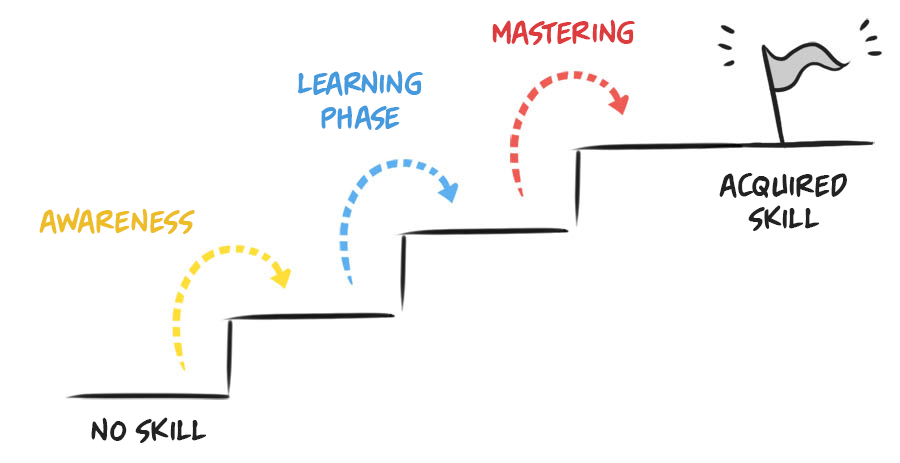
3 - Talent is an Excuse
The question of whether a person without “any talent” can equal a person “with talent” through hard work actually hides deep-seated fear, discouragement, and frustration.
Often, faced with the presumed lack of talent, we wonder what’s the point of putting in effort. We question why we should learn, as it seems unlikely that we can reach the level of the artists we admire.
At this very point lies the biggest mistake, the greatest limiting belief. It is very common to underestimate our abilities to develop a skill.
Talent is not the sole determining factor, for with hard work, perseverance, and the right approach, we can achieve extraordinary things.
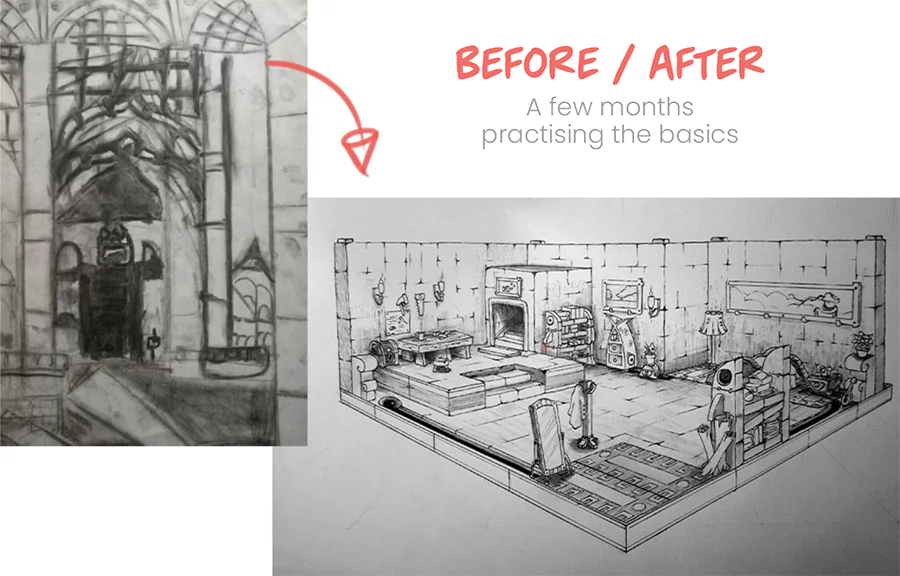
The beginner simply hesitates to take the plunge due to fear of failure. They are already envisioning that they will not succeed.
This fear is entirely human, and everyone has felt it at least once, even the best. We compare ourselves to others, underestimate ourselves, and ultimately don’t believe we are capable before even starting.
That’s why we hesitate to begin. We keep putting it off and end up never getting started. Then, a few years later, we find ourselves with regrets and a bitter feeling.
What if, instead of automatically thinking that we will fail, we anticipated the possibility of success? What if, instead of underestimating ourselves, we imagined that we would excel? With such an approach, who knows what wonders we could achieve?
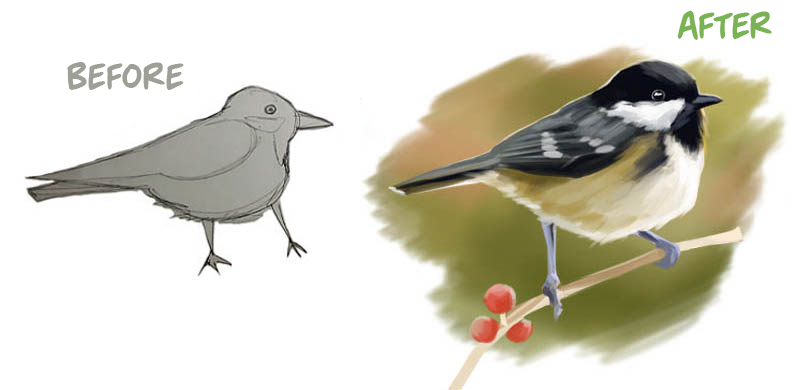
⚠️ We all start somewhere, without in-depth knowledge or specific skills. Every artist must go through this somewhat embarrassing phase where they struggle to draw. It’s entirely normal.
Despite the fear, it is our action that determines our ability to succeed or not. It’s our ability to move forward, it’s the courage that counts. Talent is not what makes all these artists successful.
In reality, it’s their perseverance, their daily commitment that has brought them to where they are today. They have learned and practiced tirelessly until they reached the level they have now.
If they have succeeded, why not you? With the same determination and the will to progress, you can achieve just as much, if not more.
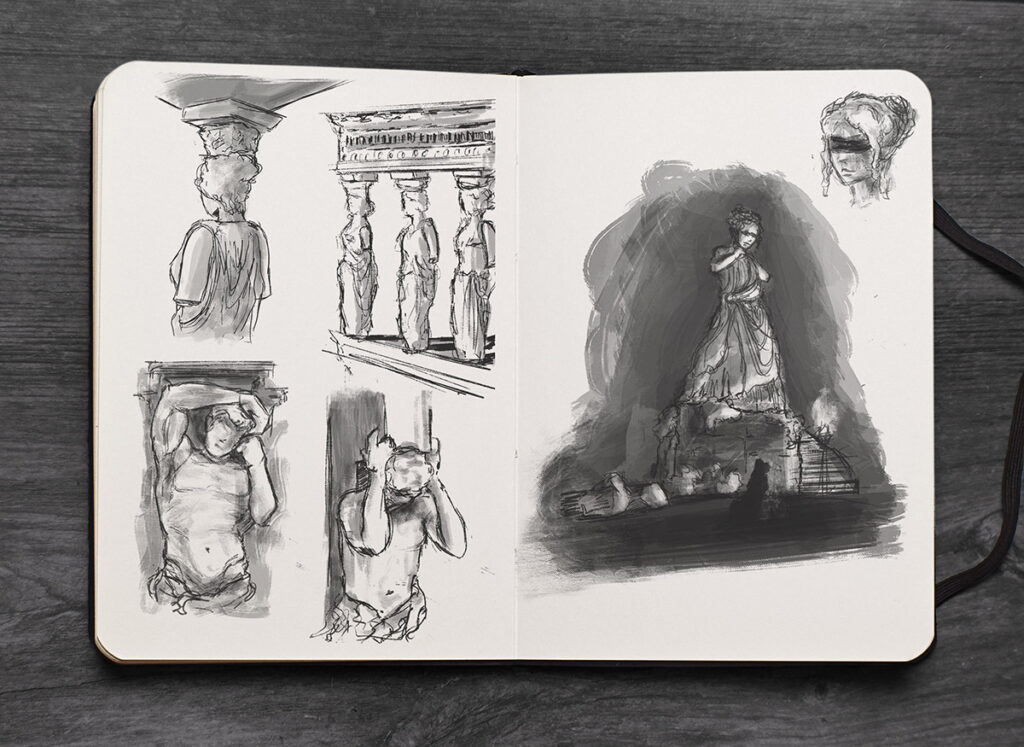
4 - Nothing is Innate, Everything is Learned
Once we understand that drawing is primarily a skill and that creativity can be developed, everything becomes achievable.
No matter the profession we currently have or the skills we possess, let’s remind ourselves that we were not born talented in this field.
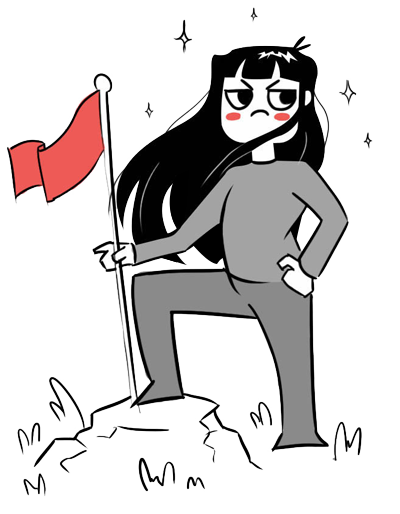
We are not very good at remembering how much of a novice we were in a field.
Once we have developed a skill, it seems like we have always had it! We simply feel that it was innate, that it wasn’t “that difficult” after all.
A handy person will easily hang a frame on the wall. However, a few years earlier, they had to learn how to properly attach something to the wall.
They realized that their drill was not suitable for concrete walls. They didn’t even know what a wall plug was. They might have pulled their hair out before finally being able to hang their frame on the wall.
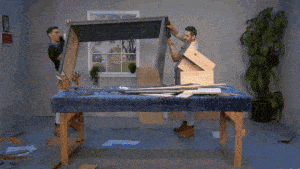
A skill, no matter how simple, is not innate. You first learned it, either on your own or with the help of someone who already possessed that skill. It is through regular practice that it becomes automatic.

5 - The 10,000-Hour Rule
Psychologist K. Anders Ericsson developed the 10,000-hour theory in the 1990s. According to him, to master a discipline and reach a level of excellence in any field, practice would be the key.

K. Anders Ericsson questioned the existence of innate talent. He then followed three groups of violinists, all of whom began their practice at the age of 5, but with different levels of training intensity.
- The first group reached 10,000 hours of practice.
- The second group accumulated 8,000 hours of practice.
- The third group plateaued at 4,000 hours of practice.
🔎 The first group consists of internationally recognized solo musicians. The musicians in the second group have reached a good level of proficiency. The last group has remained amateurs.
Of course, the idea here is not to encourage you to spend 10,000 hours practicing without ever stopping. The idea is to make you understand that hard work is the key to your success and achievement in any discipline.
6 - We Don't See Our Own Progress
One evening, while sorting through some things, I came across old drawings. Thinking that I had been stagnant for several months, it was then that I realized the progress I had made.
The brain has difficulty realizing the extent of the journey taken to reach our current level, regardless of the targeted skill (drawing, music, sports, etc.).
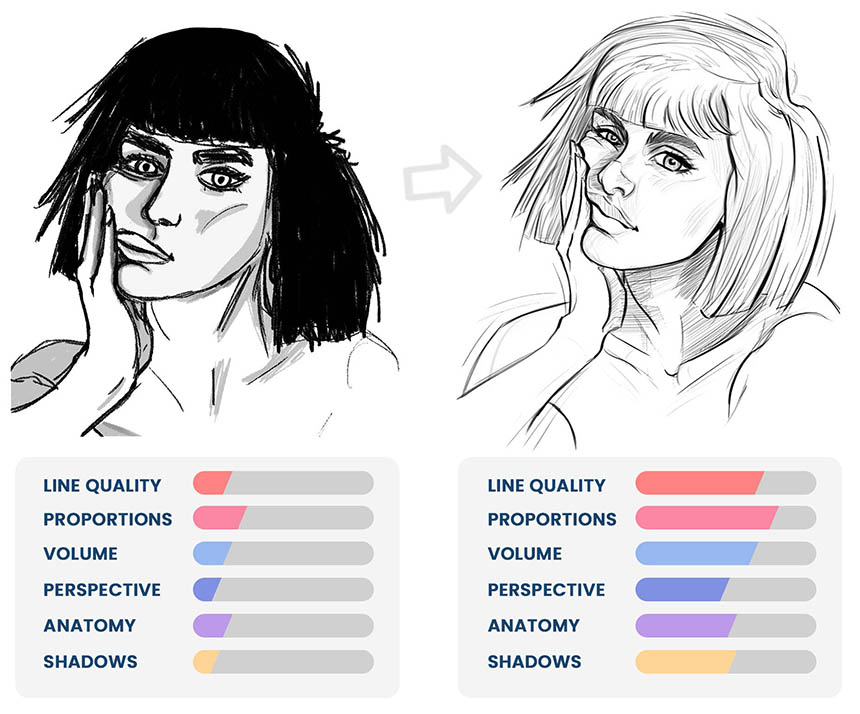
It may seem easier for us to draw today, as if it has always been this way. The shortcut is tempting, and that is probably why the concept of talent emerges, as if certain skills were innate.
It is crucial to be aware that we are responsible for our current level. Our past choices explain the skills we have today. It is through perseverance and practice that we can achieve our artistic goals.

If a child showed interest in drawing from an early age, they have spent more time practicing than others, which gives them a more advanced level. On the other hand, if someone discovers drawing in adulthood, their level will be less advanced. It’s logical.
There is no magic or talent in all of this! The development of a skill is a matter of choice and time invested.
7 - Learning Intelligently
We often think we understand something just by seeing it. The brain assumes that it fully comprehends the object it sees and is therefore capable of representing it visually. Unfortunately, it’s not that straightforward.
Drawing is not innate; it is learned through strategies, methodologies, and techniques. It is essential to remember that drawing blindly will never lead to progress.
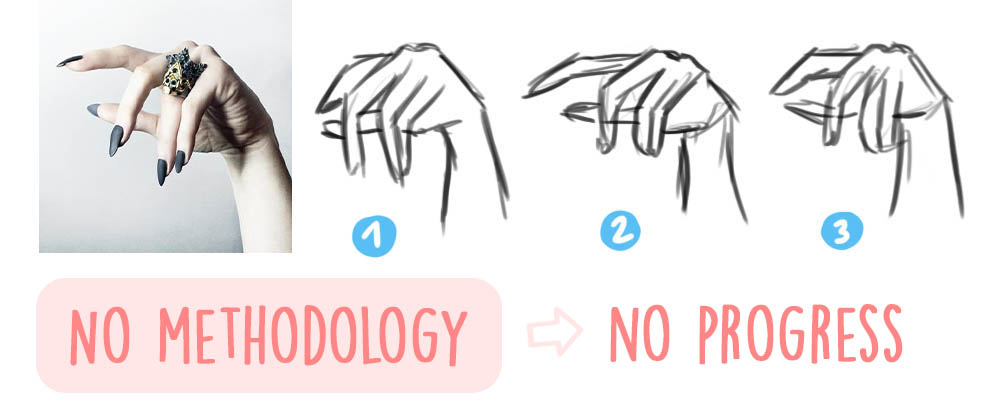
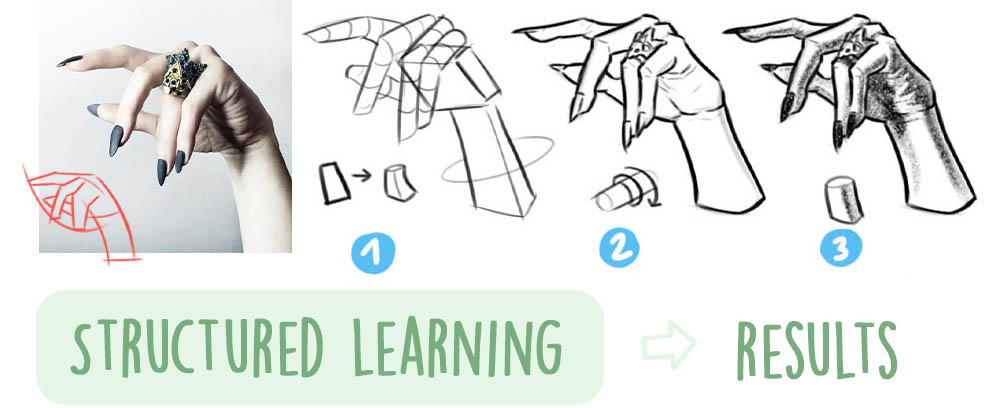
By practicing drawing without a logical approach to learning, we risk stagnation and reinforcing the idea that drawing requires talent.
On the other hand, by adopting a methodical and structured learning approach, we can make progress. Our results will prove to us that anyone can succeed.
8 - No Need for Talent, We Need Commitment
It is not necessary to have talent to learn how to draw. What is essential is to have the right mindset.
Realize that you have all the tools in your hands to reach your ideal level. It simply requires taking action!
Commit to becoming the artist you aspire to be, to progress despite the difficulties. Truly involve yourself in drawing by surrounding yourself with the best possible resources.
With determination and a willingness to learn, you will undoubtedly achieve your artistic goals.
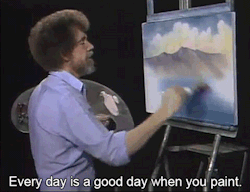
But most importantly, have fun and keep that little part of yourself that marvels at the discovery of the world. If there is one common thread among all these incredible artists, it’s not talent.
It’s their ability to see the world differently and to continue learning day after day. Take pleasure in understanding what surrounds you, exploring, and practicing.
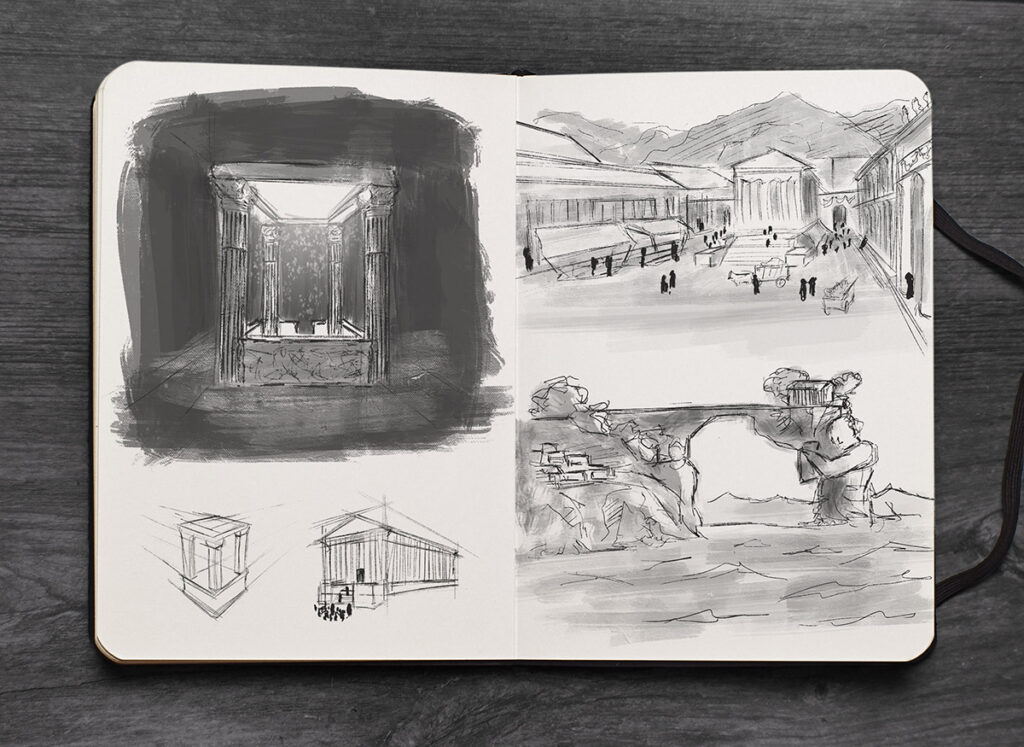
To conclude
Drawing is absolutely not a matter of talent. Some people may have more “extraordinary” abilities and capacities than others. But that doesn’t mean you can’t succeed.
It simply requires learning with the right methods and strategies, as probably no one has shown you how to learn effectively.
It’s all about perseverance and application. It’s not the difficulty that will hinder your progress, but rather your way of overcoming it and learning from it. ✍️
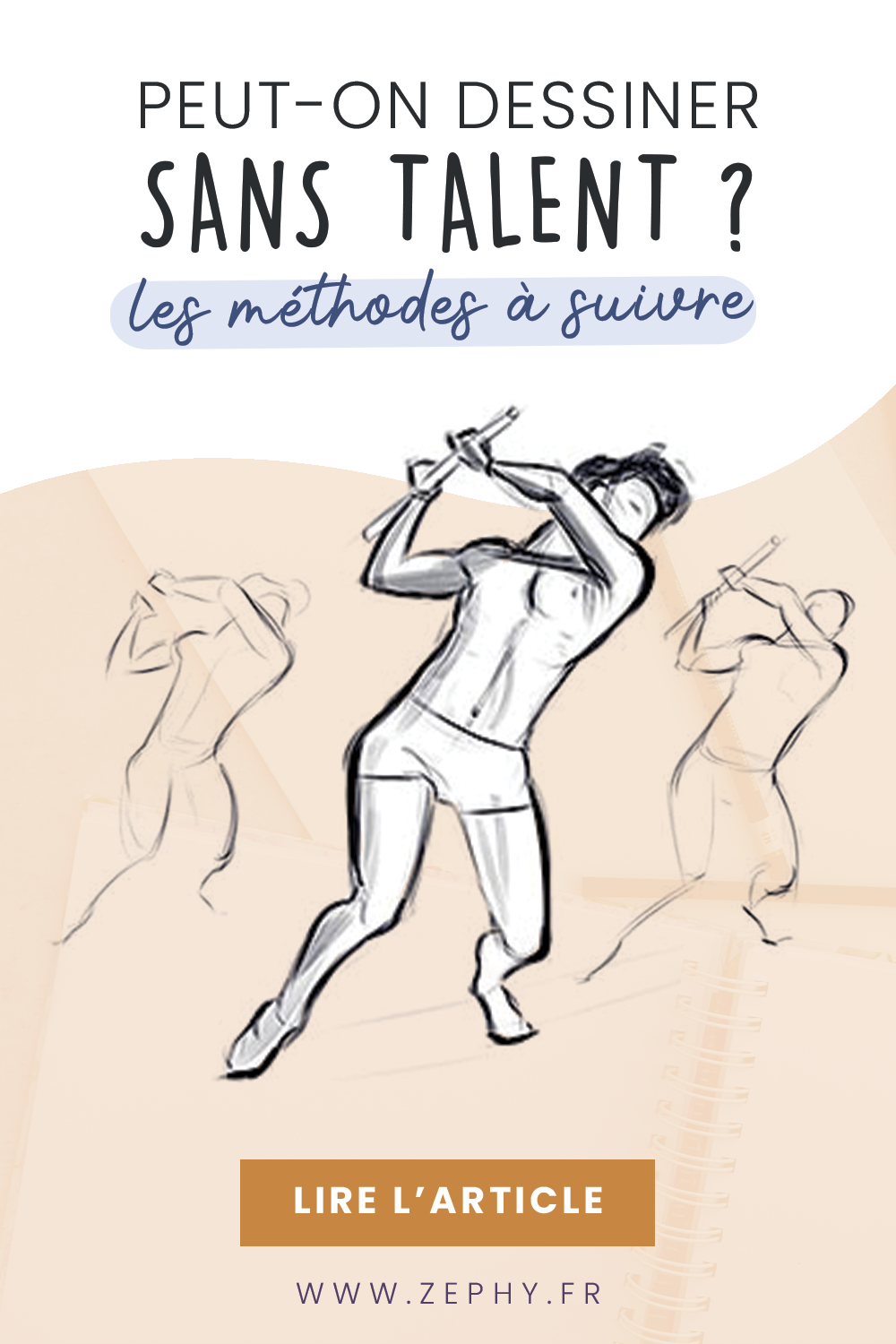

Save the article for future reference!
By hovering over the image, you can directly save the article to your Pinterest account. This also allows us to share the article with a wider audience of aspiring artists!


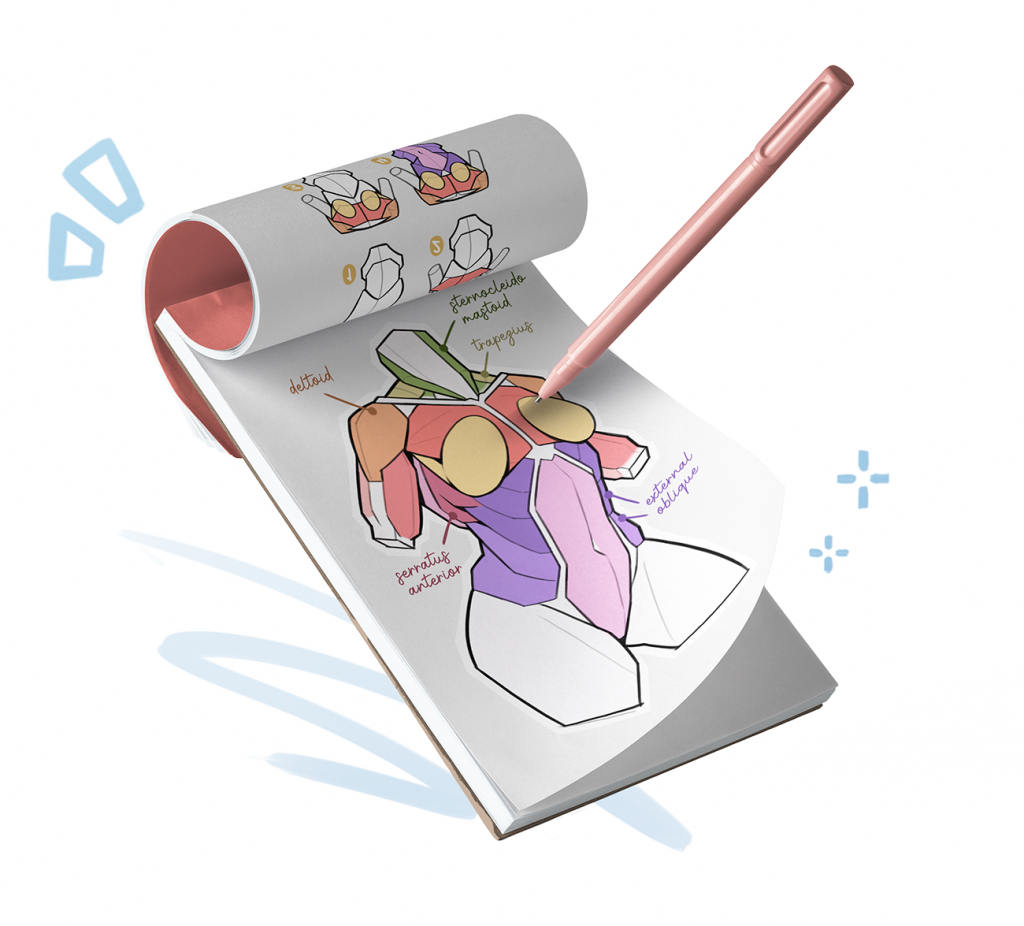



8 comments
Until now, I was discouraged, and I didn’t even want to hear about drawing. After reading this text, I feel more motivated to get back into drawing. Thank you for these words of encouragement! 🥰
With great pleasure, so happy it can give you the desire and confidence to get back into it! ☀️
Wow… Bullseye! Thank you so much for this reminder! Now I feel more ready than ever to take up this activity again!! Thank you a thousand times!!! 🙂
Oh, I’m so glad it could help! Have a great restart and happy drawing 🥰
For sure, it’s decided. Today, I’m going to start drawing humbly, just like when I was a child and loved doing it without ever talking about it to anyone. You’ve touched my heart, and I thank you for that
I’m so happy that the content could inspire you to pick up a pencil again. ✏️ I wish you lots of joy in this pursuit, and above all, have fun!
I had already drawn faces with pencils when I was 15 years old, and they turned out quite well…. Life goes on…. work, family…. Now that I am retired, I will take it up again…. Thank you a thousand times
With great pleasure! I hope the little tips on the blog will help you get back into it smoothly ✏️